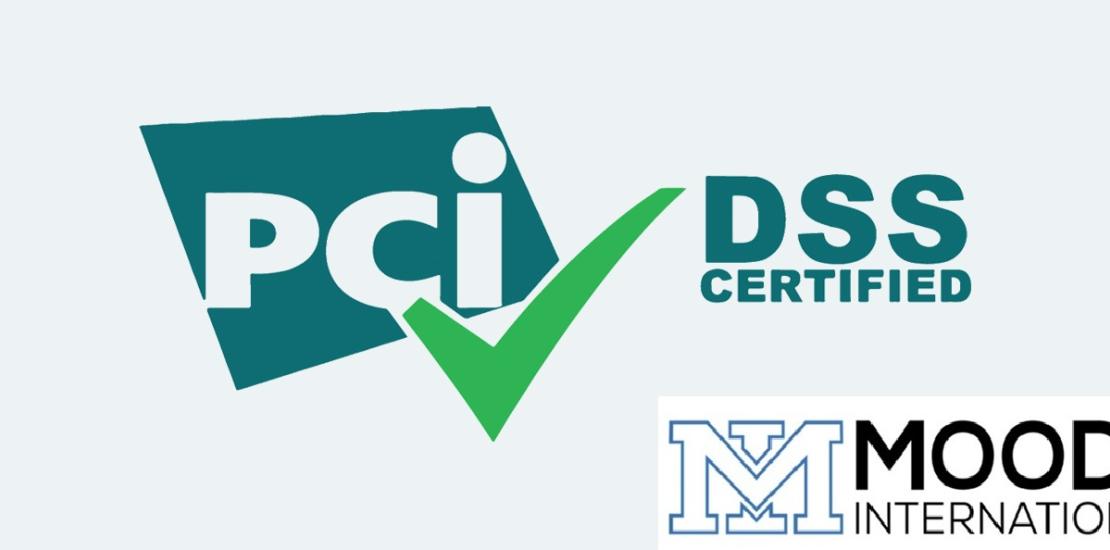
PCI DSS - Compliance Certificate
What is PCI DSS
The Payment Card Industry Data Security Standard (PCI DSS) is a set of security standards formed in 2004 by Visa, MasterCard, Discover Financial Services, JCB International and American Express. Governed by the Payment Card Industry Security Standards Council (PCI SSC), the compliance scheme aims to secure credit and debit card transactions against data theft and fraud.
While the PCI SSC has no legal authority to compel compliance, it is a requirement for any business that processes credit or debit card transactions. PCI certification is also considered the best way to safeguard sensitive data and information, thereby helping businesses build long lasting and trusting relationships with their customers.
PCI DSS certification
PCI certification ensures the security of card data at your business through a set of requirements established by the PCI SSC. These include a number of commonly known best practices, such as: • Installation of firewalls • Encryption of data transmissions • Use of anti-virus software In addition, businesses must restrict access to cardholder data and monitor access to network resources.
PCI-compliant security provides a valuable asset that informs customers that your business is safe to transact with. Conversely, the cost of noncompliance, both in monetary and reputational terms, should be enough to convince any business owner to take data security seriously. A data breach that reveals sensitive customer information is likely to have severe repercussions on an enterprise. A breach may result in fines from payment card issuers, lawsuits, diminished sales and a severely damaged reputation.
After experiencing a breach, a business may have to cease accepting credit card transactions or be forced to pay higher subsequent charges than the initial cost of security compliance. The investment in PCI security procedures goes a long way toward ensuring that other aspects of your commerce are safe from malicious online actors.
PCI DSS Compliance levels
PCI compliance is divided into four levels, based on the annual number of credit or debit card transactions a business process. The classification level determines what an enterprise needs to do to remain compliant.
Level 1: Applies to merchants processing more than six million real-world credit or debit card transactions annually. Conducted by an authorized PCI auditor, they must undergo an internal audit once a year. In addition, once a quarter they must submit to a PCI scan by an Approved Scanning Vendor (ASV).
Level 2: Applies to merchants processing between one and six million real-world credit or debit card transactions annually. They’re required to complete an assessment once a year using a Self-Assessment Questionnaire (SAQ). Additionally, a quarterly PCI scan may be required.
Level 3: Applies to merchants processing between 20,000 and one million e-commerce transactions annually. They must complete a yearly assessment using the relevant SAQ. A quarterly PCI scan may also be required.
Level 4: Applies to merchants processing fewer than 20,000 e-commerce transactions annually, or those that process up to one million real-world transactions. A yearly assessment using the relevant SAQ must be completed and a quarterly PCI scan may be required.
PCI DSS requirements
The PCI SSC has outlined 12 requirements for handling cardholder data and maintaining a secure network. Distributed between six broader goals, all are necessary for an enterprise to become compliant
Secure network
- A firewall configuration must be installed and maintained
- System passwords must be original (not vendor-supplied)
Secure cardholder data
- Stored cardholder data must be protected
- Transmissions of cardholder data across public networks must be encrypted
Vulnerability management
- Anti-virus software must be used and regularly updated
- Secure systems and applications must be developed and maintained
Access control
- Cardholder data access must be restricted to a business need-to-know basis
- Every person with computer access must be assigned a unique ID
- Physical access to cardholder data must be restricted
Network monitoring and testing
- Access to cardholder data and network resources must be tracked and monitored
- Security systems and processes must be regularly tested Information security
- A policy dealing with information security must be maintained
Why chooses MOODY?
MOODY INTERNATIONAL is a global leader in management systems solutions, having issued various management systems certifications to date. Our dedicated and experienced auditors across the globe can speak your language and help you explore the possibility of integrating your PCI DSS Compliance certification initiative with other management systems. We can also act as a one-stop provider for all your quality certification needs by offering bundled product testing and certification services. With the MOODY certification mark, you demonstrate your commitment to delivering quality products and services.
